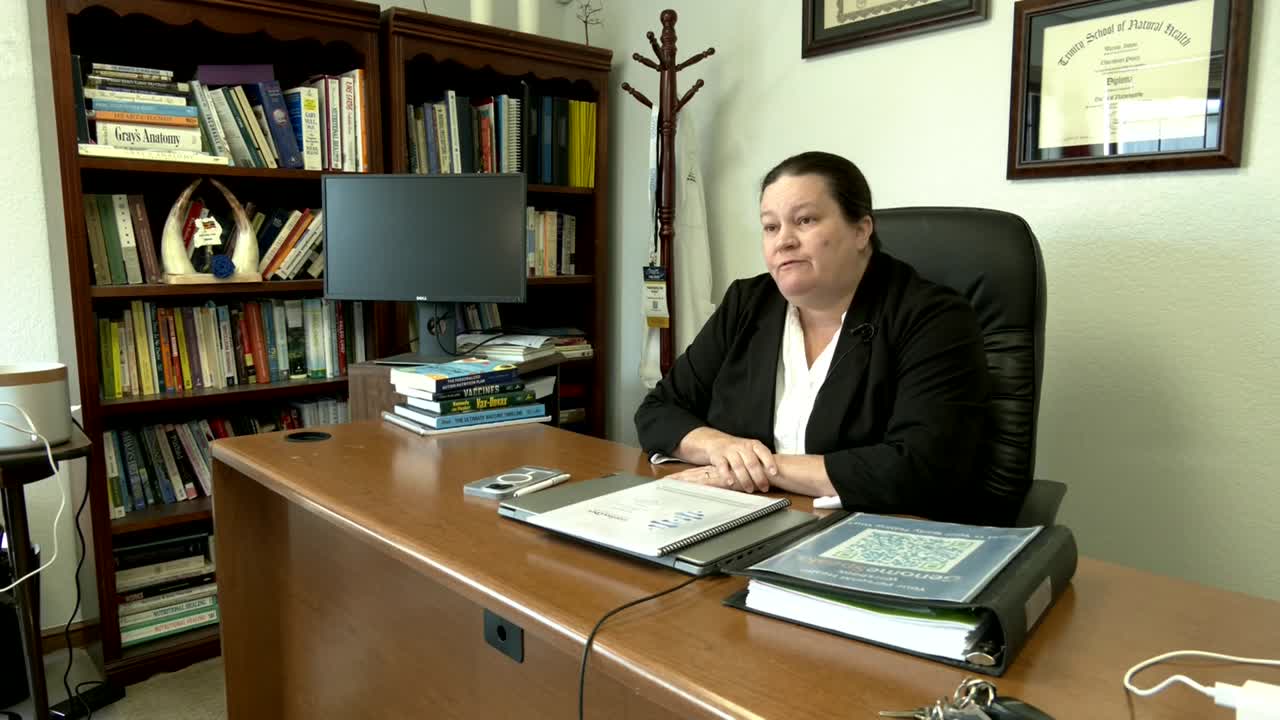A highly publicized DHS case, involving a 17-year-old with Leukemia taken into emergency state custody, has generated outrage online; prompted by some state lawmakers.
The family, who initially sought chemotherapy, eventually decided to discontinue treatment at the urging of their son.
DHS placed the teen, through its custody, back on chemotherapy treatments, according to State Sen. Shane Jett, R-Shawnee.
Jett said, as of Friday, the teen had been released from DHS custody but remained in the hospital as he is weaned from chemotherapy.
Gwendolyn Posey said the family became connected with her a few months ago. She runs a naturopathy business in Oklahoma City.
Naturopaths are a controversial subject across the country. Oklahoma does not recognize them as doctors, and they cannot practice medicine or write prescriptions.
In some other states, they can.
Bills to expand their practice have been filed before but have not become law.
Organizations like the American Medical Association have fought against naturopaths, arguing attempts to substitute naturopaths in place of physicians is an encroachment on the scope of practice of licensed physicians.
“Naturopaths lack the evidence-based medical knowledge and clinical expertise necessary to safely perform surgical procedures, prescribe legend drugs, including controlled substances, and order and interpret diagnostic tests,” the association writes in one of its handouts on the subject.
“Naturopathy recognizes the body’s self-healing abilities,” the American Naturopathic Medical Association writes on its website. “The human body has the inherent ability to recover from the constant assaults by the environment, lifestyle, and improper or bad dietary habits.”
The ANMA also emphasizes that its practice does not cure disease, but “supports the body while going through traditional medical treatments.”
Known as “integrative medicine,” naturopathy can be combined with conventional medicine, according to the National Institutes of Health on cancer.gov.
Also called complementary or alternative medicine, naturopathy is sometimes used to “help cope with the side effects of cancer treatments, such as nausea, pain, and fatigue,” the NIH says.
Representatives for the Oklahoma State Medical Association and Oklahoma Society of Clinical Oncology did not immediately respond to a request for comment.
Out of respect for the 17-year-old’s privacy, Posey declined to discuss details of his exact condition or the exact treatment plan he was following.
Q: What is a naturopath?
A: “What we do is practice helping people heal themselves using alternative methods,” Posey said. “Herbs, homeopathies, nutrition. I look at people’s genome and see whether ot not they can process things like Glutathione or Vitamin D.”
Q: Have you seen a patient with cancer before?
A: “Several, actually. We just had a gentleman, an older man, who had bladder cancer. We were able to get rid of his bladder cancer completely. So, it depends on the level of cancer. It depends on all sorts of factors.”
Q: What would be involved in an alternative treatment plan for cancer from a naturopath?
A: “100% vitamins, and sometimes herbs. I am overseen by a medical practitioner, by choice, here in Oklahoma. I’m not legally required to.”
Q: In your treatment plan, there is no prescribed medication?
A: “No, prescribed none. No. All nutritional. Nutraceutical is another word for it.”
Q: Can you coexist with oncologists?
A: “Either we coexist or one will be obsolete.”
Q: What is the effectiveness of your services?
A: “There’s no way to know, because the research hasn’t been done. So, I couldn’t give you a specific number and it would be on an individual basis.”
Q: What’s your response to people who say you’re not a real doctor?
A: “I’m not — on purpose. Don’t want to be. Look at how many people they kill a year. Now, I don’t want to work against physiology. I want to work with physiology. That’s pretty specific. I’m not them, and I don’t want to be them.”
Q: Is there a knowledge gap in regard to understanding how chemotherapy works?
A: “It doesn’t just attack the cancer, it attacks the body. I’m going to put it to you in a simpler manner: poisoning your body doesn’t bring you to better health. That’s kind of an easy way to look at this.”
Q: Even if it kills the cancer?
A: “I think in very few cases, yes. So, I’m not ‘anti-chemo.’ I actually had breast cancer three years ago, and I treated my breast cancer myself, and no, I don’t have breast cancer anymore. But my breast cancer wasn’t advanced. If my breast cancer was stage four, and certain criteria, maybe I should consider that.”
Q: In your career, did you ever consider seeking out an MD or DO as credentials to cross-pollinate with your pathway as a naturopath?
A: “I started off pre-med, and I didn’t fit in. And that goes to the fact that I have a lot of children, and I didn’t vaccinate my children. My second son almost died from his vaccinations. And the fact that, from then on, for all the other children, I wasn’t vaccinating. So, I was not a good fit for the medical community, having almost lost my second child.”
Q: Are you anti-vax person?
A: “No, no, no. For a couple reasons. One, it’s all about the person. There is choice. So, when a mom comes to me and she says, ‘I’m going to vaccinate my children,’ I’m like, ‘okay, fantastic.’”
Q: So, you’re not rejecting conventional medicine?
A: “Never, never. And my husband, when he had an accident, we went to OU trauma.”
